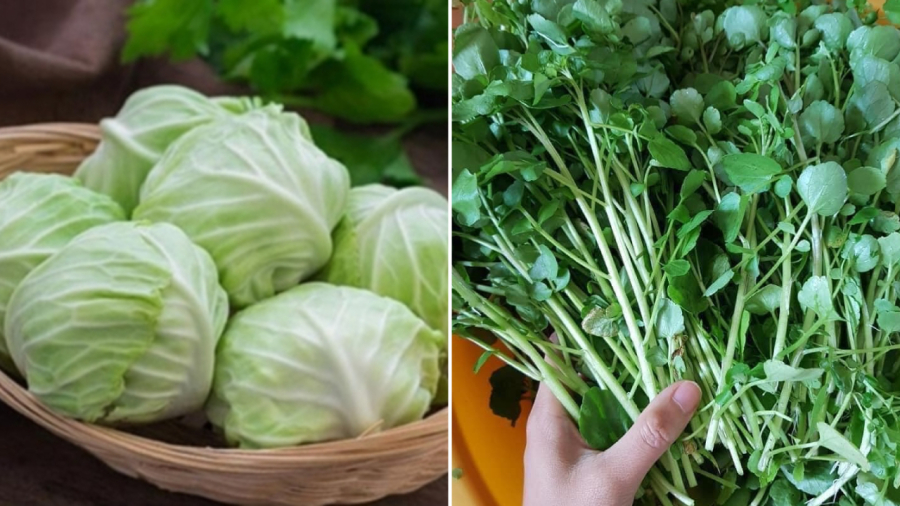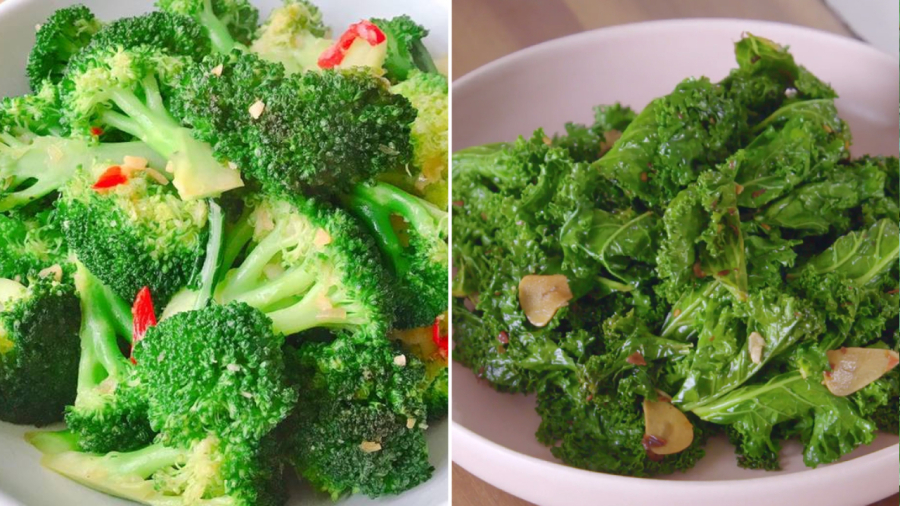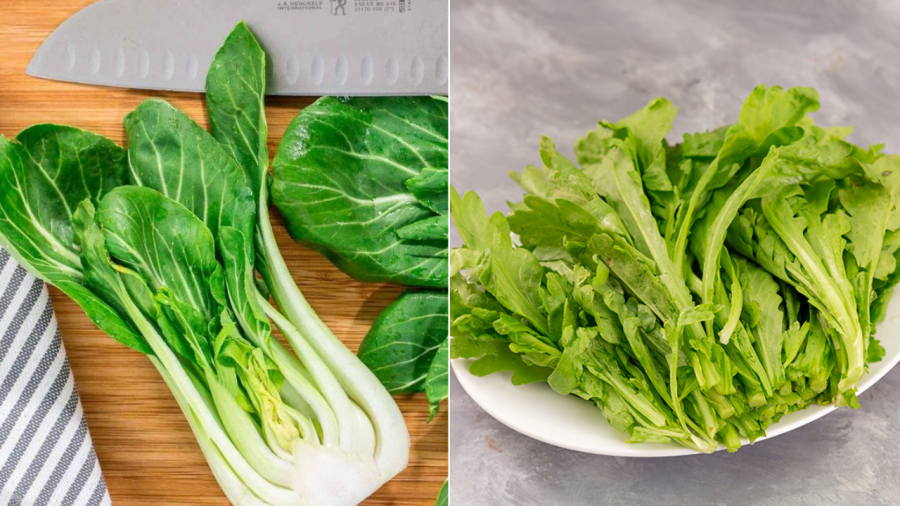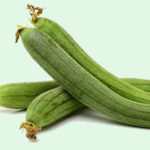Health Benefits of Cruciferous Vegetables
Cruciferous vegetables provide a rich source of fiber, important nutrients for the body such as carotenoids like beta-carotene, lutein, zeaxanthin, and vitamins C, E, K; folate, and minerals. Cruciferous vegetables also contain glucosinolates – sulfur-containing compounds that give them their characteristic strong smell and bitter taste.
During food processing, chewing, and digestion, glucosinolates break down to form biologically active compounds such as indoles, nitriles, thiocyanates, and isothiocyanates. Among them, Indole-3-carbinol (an indole) and sulforaphane (an isothiocyanate) are the two most extensively studied compounds for their ability to combat cancer cells. It has been discovered that these compounds have the ability to inhibit the formation of malignant tumors in some organs of mice, such as the intestine, liver, lungs, stomach, breast, and bladder.
Health Benefits of Different Types of Cruciferous Vegetables
– Broccoli
Broccoli is a vegetable that is rich in fiber, vitamins, and minerals such as vitamin K, potassium, phosphorus… This vegetable is not only good for digestion but also enhances the body’s immune system, protects the skin, improves vision, strengthens bones, and inhibits the development of tumor cells.

– Kale
Kale contains antioxidant compounds such as lutein, zeaxanthin, beta-carotene. These compounds have the effect of protecting the eyes, limiting the risk of cataracts, macular degeneration, reducing cholesterol levels in the body, and preventing cardiovascular diseases.
– Brussels Sprouts
Brussels sprouts (also known as green cabbage) are rich in fiber, vitamins B, C, K, and antioxidant compounds that help reduce inflammation, control blood sugar, and are beneficial for women’s health. This vegetable also has the effect of slowing down brain aging, preventing memory decline due to aging.

– Cauliflower
Cauliflower is one of the healthiest foods that you should include in your daily diet. This vegetable provides a lot of fiber, is low in fat, and has a low calorie content. It improves digestion, helps reduce bad cholesterol levels in the blood, supports joint health, and improves sleep quality.
– Turnip Greens
Turnip greens are rich in protein, fiber that is beneficial for the digestive system, helps suppress appetite, and provides weight loss benefits. Additionally, it provides folate, potassium, vitamin C, B6, E, beta-carotene, which are good for skin beauty, prevent cardiovascular diseases, and inhibit the development of cancer cells.

– Napa Cabbage
Napa cabbage provides abundant proteins, vitamins A, B, C… It has a sunscreen effect, prevents the formation of brown spots on the skin. Additionally, it helps reduce allergies, promotes strong connective tissues, improves blood circulation, and removes excess cholesterol in the body.
– Chinese Cabbage
Chinese cabbage is rich in vitamin C (100 grams of Chinese cabbage can provide 45mg of vitamin C, equivalent to 75% of the body’s daily vitamin C needs). Vitamin C helps fight free radicals, enhances the immune system, prevents infections, and reduces inflammation… Especially, supplementing foods rich in vitamin C in winter enhances immunity, prevents respiratory infections.
Chinese cabbage also contains vitamin B6 which helps maintain the immune system, regulate blood sugar levels. This vegetable does not contain cholesterol, so it can be used to protect cardiovascular health for people with high blood pressure.





































